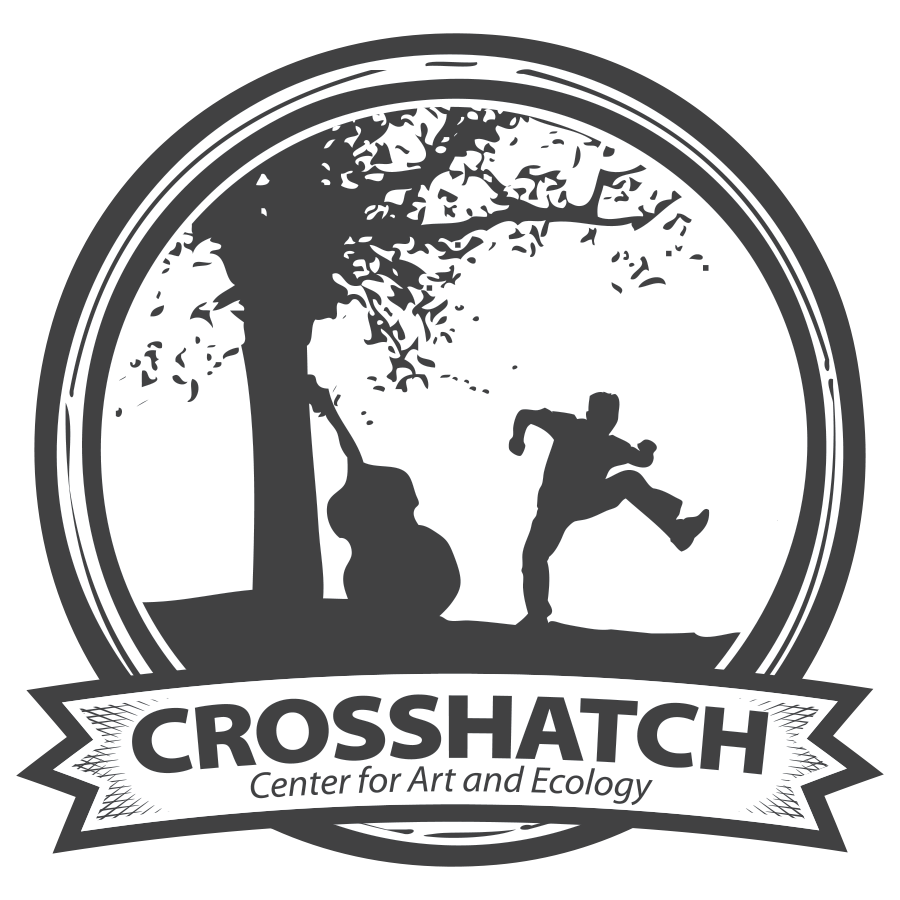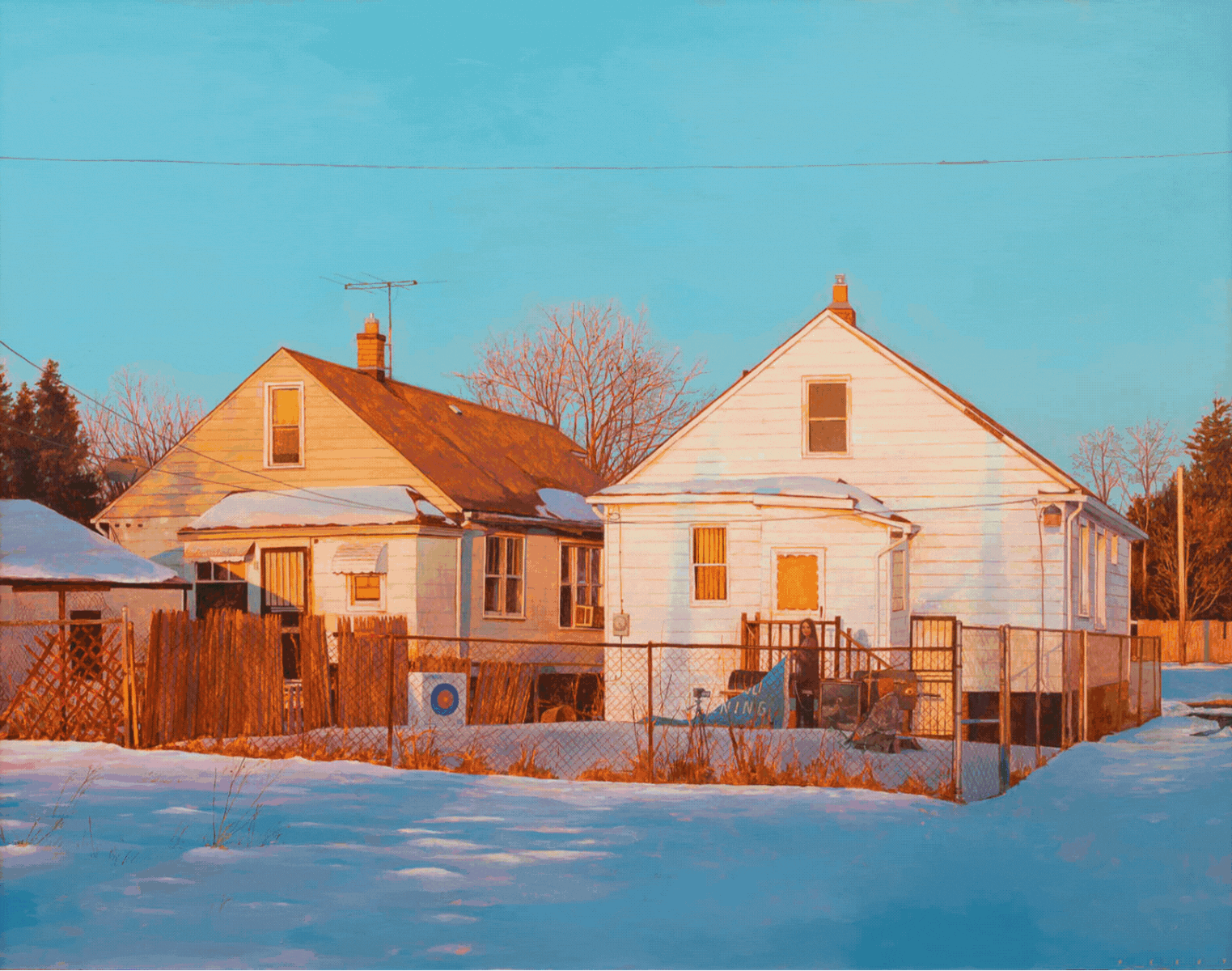Volume 3 • No. 19 • New Moon • October 2, 2024
an excerpt from
Hooray for a Really Inefficient Way to Reduce People’s Energy Use-
a guest writing from Dave Brooks
…The volunteer-based program, which started in Maine, expanded to Vermont and easing into New Hampshire, creates pine frames wrapped on each side with sealed, clear polyolefin film that can be inserted into leaky windows. Consider it a portable storm window, one of many ways that people can make themselves more comfortable without having to spend more on heating or air conditioning. The group sells them and donates many as well…
Photo via WindowDressers
…Efficiency-minded geeks will not be impressed. Gathering volunteers to do something is no way to “scale” an operation, to use business terminology. Better would be to build the inserts entirely in one location and ship them out.
But the modern world is making me think that we’ve got to stop thinking that efficiency is always a good thing. More often than not it results in some sort of dehumanizing change that takes the fun out of life, increases the gap between haves and have-nots, and generates a world with “more” but not “better.”
That’s because efficiency is based only on things we can quantify, which is usually physical output per time. Pleasure, satisfaction, long-term stability – those are hard to measure and put on a sliding scale, so efficiency pretends they don’t matter.
Creating window inserts through a community build is deemed inefficient because the total number produced is small, but only if you don’t factor in the benefits of getting people together and giving them a shared goal. And our fractured society, the land of bowling alone, needs all the shared goals we can get…
The Warp — Ideas and Inspiration
|| 1 || Five Quick Tips (and Examples!) for Just About Anything
#1. Make the most of what you already have.
Charles Marohn, founder of Strong Towns, has put an awful lot of work into both understanding how to make places better and sharing those findings. Here’s an inspiring nutshell:
Two decades from now, I suspect contraction of infrastructure will be a common and shared experience across our cities.
This means that the task of city-building must shift dramatically, from building more to making better use of what we already have.
Okay, Chuck, so what does that process look like?
At Strong Towns, when we want to make immediate and meaningful changes in our communities, we follow a four-step process:
Humbly observe where people in the community struggle.
Ask the question: What is the next smallest thing we can do right now to address that struggle?
Do that thing. Do it right now.
Repeat.
The details of each of those steps are worth a gander. And if listening is more your speed, Charles is speaking in Michigan (Midland, Spring Lake, Muskegon) next week.
|| 2 || Consider alternatives to high-tech solutions.
Like the work of WindowDressers, “low-tech” tools might be deemed inefficient. But look at the larger scope of intentions and impact, and you’ll find a very different story. There might be a tone of frustration in Ashley Colby’s There’s no such thing as a low-energy rich country, but she asks crucial questions: what if humans have something particularly special and needed to offer to the rest of the world? If so, what do those systems and tools look like?
|| 3 || Consider root causes of predicaments.
Sault Ste Marie’s Crane Institute for Sustainability write-up Most of What Doctors Treat is Failed Prevention looks into the problem of doctor shortages and an overburdened healthcare system in Canada’s Sault. Their assessment? A better long-term strategy than aiming primarily to bring in doctors from overseas or ramp systems up in general is to strive to reduce demand on the healthcare system in the first place. Working towards healthier, more resilient communities makes this happen. Take road and infrastructure design, for example:
…when the city plans and designs our community with roads and private automobility in mind, it establishes – as the default – a sedentary lifestyle that is polluting, costly, discriminatory, noisy, energy intensive, unfair and inequitable, divisive, harmful to our (sense of) community/participation/belonging/empowerment/place/trust, impoverishing and fundamentally unhealthy. By design. The result contributes to preventable heart disease and cancers, along with many other preventable diseases, not to mention collision-induced harms that the Speed Management Task Force is currently struggling with.
|| 4 || Consider slowing down.
The gist of Craig Beroch’s business world consulting shtick is “deceleration.” Wait, what? A business decelerator? There might be a reason the comments are turned off in this video outlining their platform.
Sometimes, it’s helpful to prioritize slowing down and things other than profits or efficiency. By “helpful,” I mean beneficial for things like your body and mind, and your community (both human and the broader ecological community around you.) Part of me shies away from the idea of self-care with the end goal of increasing production. Still, I can get behind self-care for a deeper connection to day-to-day work, meaningful engagement, and relationships with those around me without qualms.
|| 5 || Find ways to show up together.
Sometimes through shared work, sometimes through shared fun: here’s an article from Shifter on what bike races in rural America can spark.
…there is another important factor that often gets completely overlooked in the coverage of events like Unbound. City people come to the country. Like two alien species lining up to spend a bit of time together. Think spandex and Copenhagen, long cut of course. Less than 2% of Americans are involved in farming and ranching. Having grown up a part-time ranch kid, the misunderstanding of rural life, agriculture life, is profound and holding the country back in many ways. Ignorance and arrogance. But what’s interesting is during events like this the guards are down and the curiosity is up. You look weird, what are you doing here? Need some water? It’s THAT simple.
Speaking of cycling events, the U.P.’s Marji Gesick, “the hardest single-day mountain bike race in America,” wrapped up a couple of weeks ago. Registration for next year opens up in less than two weeks. And just like the snow, Iceman Cometh will be here before you know it.
The Weft — News and Events
We’re heartened by a wide-range of expressions of resilient communities and gatherings. Here’s a smattering of regional events and happenings that reflect that diversity, collected for your consideration. Choose your own adventure!
|| 1 || The 2024-2025 Carbon Farming and Forestry Planning Cohort(taking place between November 2024 and June 2025) is recruiting now. Participation is recommended for all individuals and families seeking support for conservation and climate-smart activities on land they steward. The program provides connection opportunities with other land stewards, decision-making assistance, and guidance geared toward climate resilience. Find more information and sign up here.
|| 2 || Grand Traverse Beekeeping Club. Thursday, October 3rd at 6:30pm, Oryana West’s Community Room. An organizing gathering looking back at the past year and forward to the next, including invitations to deepen participation in the club. Show up or request access to the group online to learn more.
|| 3 || Reading and Book Signing + Poetry Workshop with Fleda Brown. Join Fleda, author of The Woods Are on Fire: New and Selected Poems, for a reading and discussion of poetry on October 23 at Bos Winery in Elk Rapids, and a writing workshop at Grass River Natural Area in Bellaire on October 24. The first 25 people to register for either event will receive a free copy of The Woods Are on Fire: New and Selected Poems.
|| 4 || The Kingsley Folk School, “a non-profit community space for sharing and learning skills from folk traditions for all ages,” is raising funds to build a yurt for year-round classes and workshops for larger audiences. Find more on the fundraiser here.
|| 5 || Savanna Institute’s Perennial Farm Gathering will take place in Madison, WI, October 6th-8th. Find more on the in-person gathering, as well as more details on Chef Sean Sherman’s keynote address “The (r)Evolution of Indigenous Foodways” here.
|| 6 || Harvest—A Celebration of Food, Farms, and Culture. Friday, October 18th at 5-7pm, DeYoung Natural Area Farmstead. Breathe Owl Breathe, a food and farming panel discussion, local food and drinks, and more. Click here for more details on the free celebration and to sign up.
|| 7 ||Registration for the 2024 Michigan Beekeepers Association Fall Conference is now open. Saturday, October 19th, 8am-5pm at Benzie Central High. Click here for information on the upcoming sessions, pre-conference offerings, and keynote address, as well as registration.
|| 8 || The Fresh Coast Film Festival, Marquette, MI, Oct 17-20th. A documentary film festival celebrating the outdoor lifestyle, water-rich environment and resilient spirit of the Great Lakes and Upper Midwest. Find more and/or get tickets here.
|| 9 || Happenings at The Alluvion Between Now and the Next Whole Field include: the Joshua Redman Group featuring Gabrielle Cavassa, The Jeff Haas Trio featuring Laurie Sears and Lisa Flahive, Jesse Ray and the Carolina Catfish with Eric Dane Jaqua-One Man Band, The Sound of Detroit with Joel Fluent Greene, Peace Bell, Evening Star & Amber Hasan, Big Fun, Mindful + Musical with Miriam Pico: MINI BIRD, Expand Storytelling, Moss Manor, The Claudettes, Eric O’Daly, Funky Uncle, and StoryProv.
Find more information at www.thealluvion.org.
sponsored by:
Desmond Liggett Wealth Advisors is a mission-driven, fee-only wealth management company with a simple purpose: to generate exceptional value for the individuals, families, small business owners, and non-profit organizations they serve. Desmond Liggett Wealth Advisors believe in and adhere to triple-bottom-line analysis for portfolio investments, ensuring that they review how a company’s environmental and social values impact its long-term resilience and, consequently, value.
Many thanks to the Michigan Arts & Culture Council and the National Endowment for the Arts for their support of this work.
Crosshatch’s The Whole Field is a biweekly (meaning roughly every other week) human-written newsletter. We aim to provide engaging, thought-provoking content that’s worth your time. If you’ve been forwarded this email and want to receive future editions, click here to subscribe to our mailing list or view past newsletters.
We also envision this best as a collaborative work. If you have any suggestions, leads, questions or feedback, we appreciate your reply directly to this email.
Copyright (C) 2023 Crosshatch. All rights reserved.










